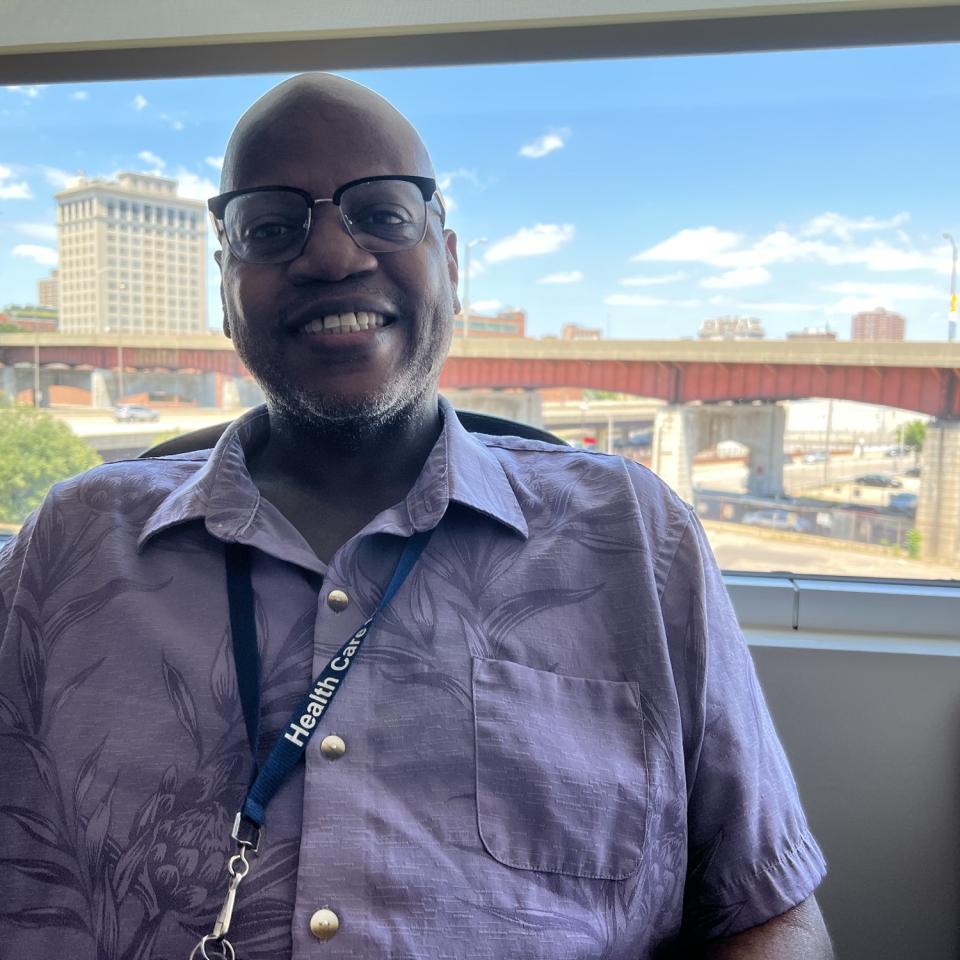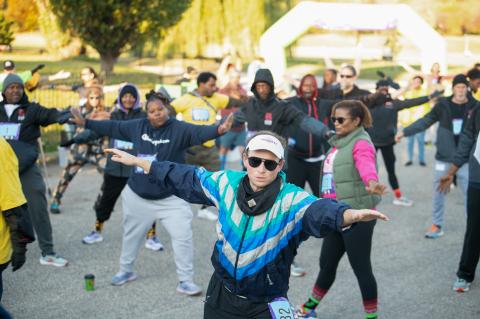
Training the next generation
This past year was the first time Behavioral Health Coordinator Arianne Jennings, LCPC, D.Ph. supervised a social work student.
“The pandemic has taught us that everyone needs support for their mental health no matter what they look like or where they live,” she explains. “We need more therapists out there. So it’s important that we’re a part of helping the next generation of therapists the same way someone did it for us.”
Undergraduate and graduate students in clinical fields come to Health Care for the Homeless to shadow and learn from staff anywhere from a few days to a full calendar year. Arianne and other clinicians provide hands-on training for these future therapists, social workers, nurses and doctors.
Like Arianne, many staff feel a responsibility to support the development of thoughtful, informed clinicians. And many educational programs offer limited instruction in harm reduction modalities, care for under-served populations, or racially equitable and inclusive approaches to clinical care. These skills are extremely beneficial for anyone in a health care field, regardless of their career path.
Research tells us that people experience better patient-provider communication—including visit length, respect and participatory decision-making—when seeing someone of the same race or ethnicity.
With only 4% of therapists, 5% of primary care doctors and 2% of psychiatrists identifying as Black across the US, this impacts the quality and experience of care available to clients.
As an agency, we can do our part by examining our practices as a clinical learning site. Students who train here are sometimes interested in working here upon graduation, making this program a “pipeline” into direct care positions.
So what does it mean if we are not ensuring that African American, Black, and Hispanic/Latinx students are represented among student placements?
Volunteer Manager Marc Bowman, MSW sees opportunity here. “My goal is for our clinical learners to more closely reflect the clients we see,” he says. He is cultivating formal partnerships with social work and nursing programs at Historically Black Colleges and Universities (HBCUs).
There are four within an hour of us: Morgan State University, Coppin State University, Howard University and Bowie State University.
Marc believes that because we have long-standing relationships with local Predominantly White Institutions (PWIs), we can use this as an opportunity to have critical conversations with them around racial equity and inclusion. How is a placement at Health Care for the Homeless framed by the PWI? What do students and program staff know about the needs of the community and our approach?
“It is important to underscore that nearly 63% of Baltimore City residents identify as African American, and 8% identify as Latino/Latina,” says Marc. “We want to get to a place where clients can see providers who look like themselves, feel more at ease in treatment and get better health outcomes.”
Interested in becoming a clinical learner here?
More Recent News
At our annual staff holiday party, we take time to recognize and celebrate staff members who best represent our Core Values, as well as one recipient of the Von Bradshaw Award, named after Delvonia "Von" Bradshaw, who passed away in 2024 and truly held the principles of Health Care for the Homeless to heart. Please congratulate your colleagues when you see them!
Those of us in the Health Care for the Homeless community share a belief in something powerful: that everyone should have a place to call home.
Hope for that vision isn’t passive. It’s something that clients, staff and community supporters make possible together.
With SNAP benefits in Maryland facing uncertainty, many families are wondering how they’ll put food on the table. Here are ways Health Care for the Homeless is helping, as well as a list of local food assistance resources.
On Saturday, November 1, more than 300 runners, walkers, friends and volunteers gathered in Patterson Park for the 2025 Rock Your Socks 5K. Read all about this year's awesome event!




